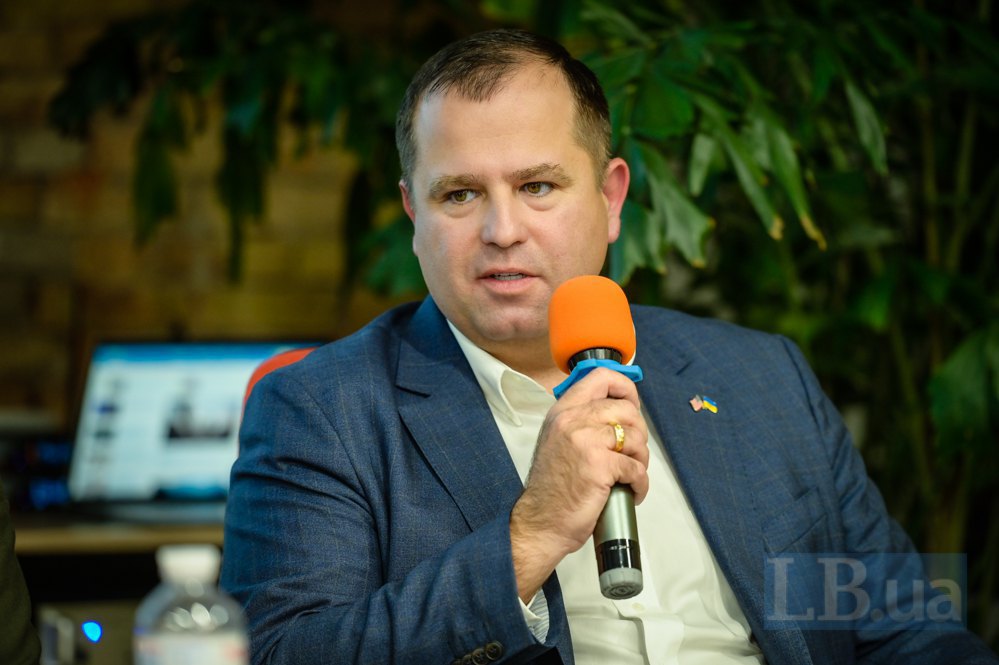
"It was easier for Ukrainians to talk to Democrats because historically, the states with the largest Ukrainian populations vote for Democrats."
Tell us more about what AUCA (American Ukrainian Christian Alliance) is, the idea behind its creation, and its main goal.
American society is extremely polarised, and the results of all elections over the past few decades only emphasise this polarisation. But now the divide is not only along political or geographical lines, but also along lines of values. Moreover, these values are determined precisely by the history and origins of the people of particular states.
However, within a state, we can see how a metropolis votes one way and the rest of the state votes another. The values of metropolises in the modern world are transforming more quickly and appear more liberal, while the provinces are always more conservative.
Are there any examples of this?
A striking example is the voting for city mayors or the correlation of these votes with the general vote for Congress, the Senate or the president.
Take Texas, for example. It is traditionally Republican, but the mayor of Houston, the largest city, is a Democrat.
Georgia is "red" (i.e., the majority supports the Republican Party — S.K.), the governor is a Republican, the state votes for Republicans, but Atlanta is Democratic.
The same is true of Florida: Jacksonville, Orlando, and a recent example – Miami. For the first time in several decades, a Republican has been elected mayor there. The consolidating factor was the Cuban and Latino votes in support of Marco Rubio, who was a senator from Florida for many years and a nominee from these groups.
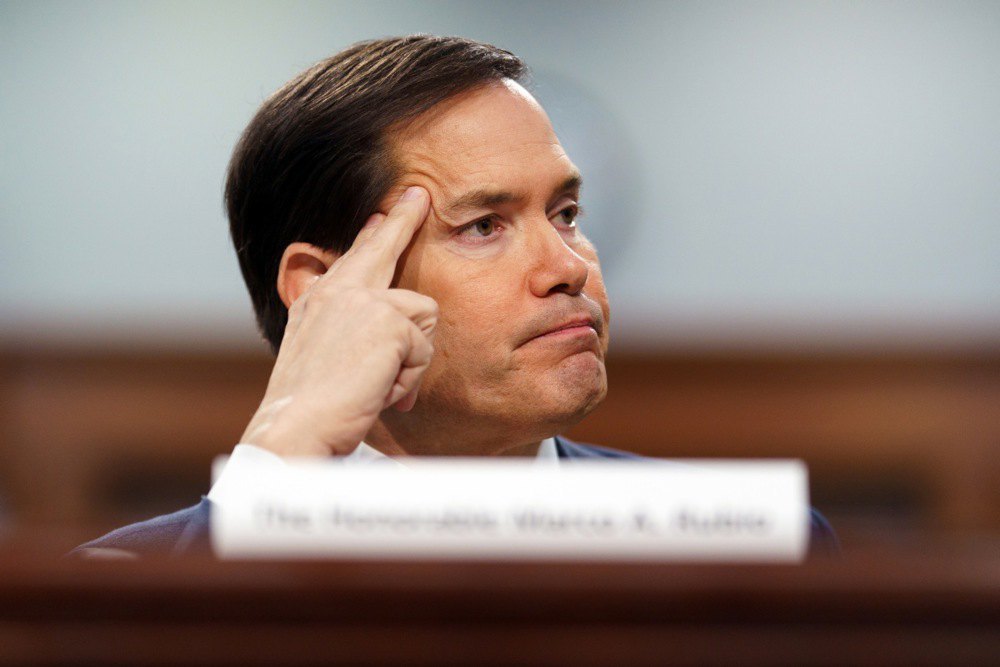
In liberal California, the big cities vote for the Democrats, but the whole farming part, the Sacramento River Valley, Fresno (a city in California – S.K.), in short, the whole agricultural cluster of California votes for the Republicans.
If we look at how votes have changed in recent years, we see that this polarisation of American society has followed the line of values.
By values, you personally mean the religious factor first and foremost. How has the position of secular people changed (or not changed)?
Secular people also take value orientations into account because they influence, for example, the institution of marriage and the institution of education, which, incidentally, has become a very important factor for secular people.
Take Glen Youngkin, who won the last gubernatorial election in Virginia. Secular Virginia sensationally voted for the Republican candidate Youngkin because he led the resistance movement against the arbitrariness of school committees, which began to impose school curricula on children against their parents' will.
It was not exactly a religious issue, but at its root were profound values. Parents overwhelmingly did not want their children to be taught in school lessons and curricula that they could choose their gender or anything else. And quite secular people said, "No, this is too much.”
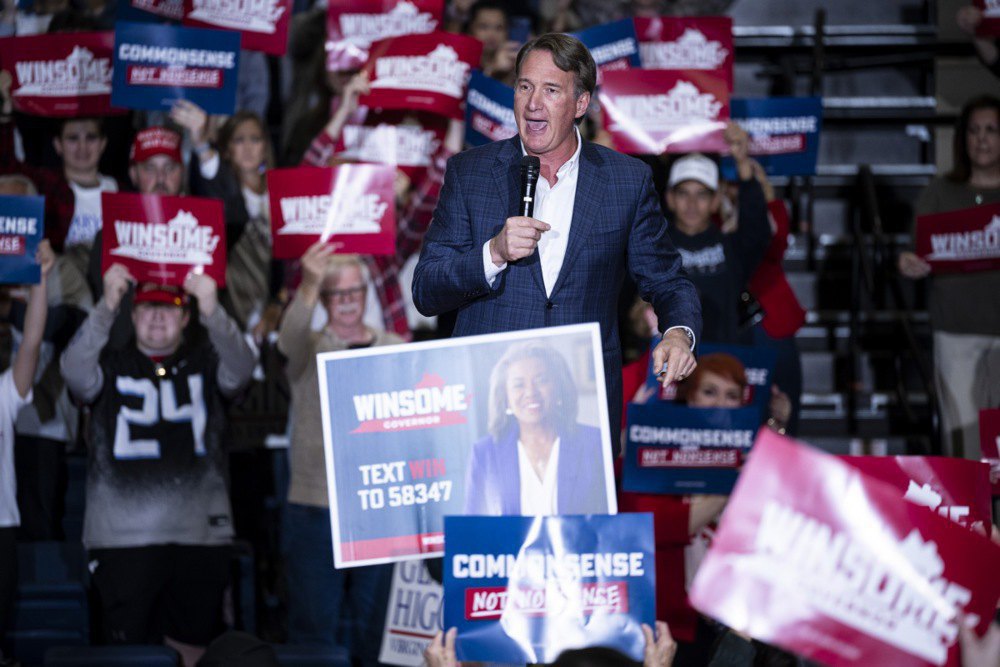
Therefore, one way or another, in the United States, even on a secular level, certain things will still ultimately appeal to deep-rooted values, because that is the nature of America. But they embedded in their DNA a great experiment with human freedom, with the principle of a shining city on a hill. And so, one way or another, most narratives will still be based on either a conservative or liberal view of life.
And in this regard, in this configuration, it is extremely important for us, for Ukraine, to be able to talk to both Americas, to both audiences.
Ukrainians, Ukrainian civil society organisations, expert circles, Ukrainian media, and the Ukrainian diaspora have been able to talk to Democratic America — democratic, liberal America — for quite some time, because the states with the highest concentration of Ukrainians are those that traditionally vote for Democrats. Why? Because they have more moderate and migrant-friendly rules. Accordingly, there are more migrants there in principle, including the largest number from Ukraine. This explains why Ukrainians have traditionally been closer to communicating with these groups of American voters and American politicians.
When this essentially "cold cultural war" began in the United States, it became clear to us that we needed to develop communication with conservative America as well.
We began doing this several decades ago in the usual way. But when the war began, we had to make greater efforts because we faced the problem of many sincere, good people — conservatives, Republicans, and Christians — not understanding the Ukrainian case.
Therefore, AUCA is the first group-community of Ukrainian Christian leaders in America, or perhaps even broader – the American Evangelical Ukrainian community in the United States — created to communicate with conservative America in one language based on a shared vision of the future for both their country and Ukraine.
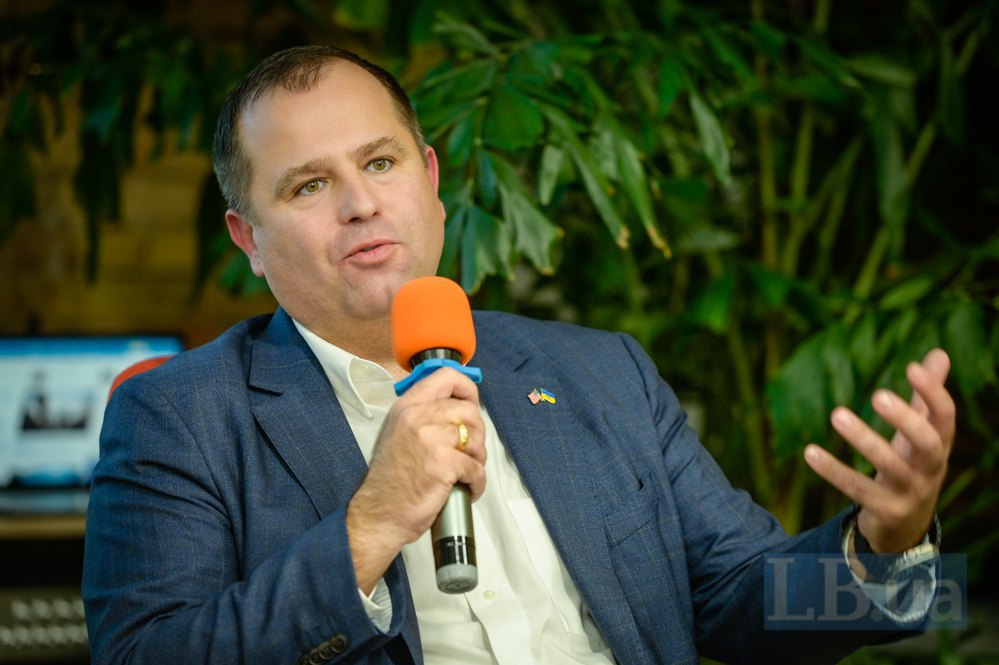
And here there is unlimited potential for cooperation, because we, as countries, are very similar in terms of our conservative activism, history, and the fact that we live in a frontier environment. America was created as a frontier in the Wild West, and we have been playing the role of a frontier next to the Wild East for centuries.
In a few weeks, an important strategic and, to some extent, historic partnership agreement will be signed between the Baptists of Ukraine and the Baptists of the key Republican state of Texas. The document will be signed by the head of the Ukrainian Baptist Union, Valeriy Antonyuk, and Vice President Ihor Bandura.
How is this related to AUCA?
AUCA includes pastors, clergy, and activists of Ukrainian descent who profess Christian values and are, at their core, Christians and evangelical conservative believers, including in the state of Texas. This is a mutual reinforcement.
What is this partnership about? It is about churches in Texas partnering with churches in Ukraine. But to do this, we need to create the infrastructure for this interaction. For example, the AUCA coordination centre in Texas is located in Dallas. We facilitated the signing of an agreement between the cities of Kharkiv and Dallas.
This agreement was signed online, and the mayor of Kharkiv, Ihor Terekhov, was invited to Dallas. It took several years before he was able to escape (after all, we understand the shelling that Kharkiv is under) and finally visit the United States. In response to these signed agreements and documents, the first circle of conservative leaders sympathetic to Ukraine was consolidated, and the first projects began.
For example, two weeks ago, a delegation from Texas arrived and opened a centre in Kharkiv to provide social, humanitarian and psychological assistance to the city's residents. And this is only the first step.
In other words, AUCA is not only there to advocate for Ukraine in the United States, but also to build the infrastructure for providing concrete assistance to Ukraine here.
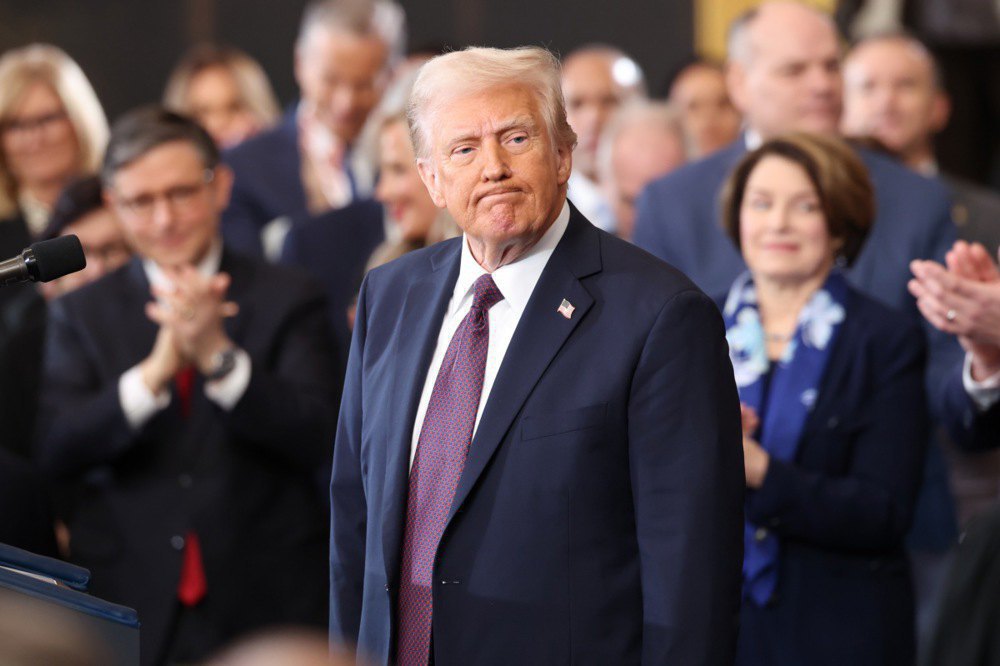
"For patriots and traditionalists, symbolism — the American flag, soldiers, eagles, coats of arms, Air Force One — is a serious matter. And here's the picture: an American soldier rolling out the red carpet for a dictator."
A year ago, Donald Trump took office as President of the United States of America. For the whole world, and for Ukraine in particular, it became clear that new approaches to communication with the American administration and politicians in particular were needed.
There was an important case in spiritual diplomacy when Mike Johnson, Speaker of the House of Representatives and a staunch advocate of military aid to Ukraine, changed his mind after meeting with the husband of Anna Haydarzhi, the daughter of a Baptist pastor who was killed in Odesa by a Russian drone, and her four-month-old child. But this approach worked once; it is not certain that it will work a second time. How do you adapt to new challenges?
I agree, this is a new reality with new approaches. And it is being shaped primarily by the obvious, unconditional monopoly on decision-making by the White House. The White House in the broad sense — the administration, the president — is the main decision-making centre. The presence of a stable majority in the House of Representatives and the Senate only increases this weight. And this is the number one feature.
The example mentioned was indeed very successful, thank God that Speaker Johnson listened to this argument. But this argument worked in a political environment where there was political opposition. Now there is none.
Now it makes sense to persuade the Speaker or Congressmen or Senators, but decisions are made in the White House. So we need to work on other aspects. First of all, the White House has created institutions for communication with the conservative community in the United States and around the world. This is the Office of Faith-Based and Neighborhood Partnerships, headed by Pastor Paula White. The second institution is the Pastoral Council, of which Mark Burns is a member. Therefore, our work has shifted more towards communication with these White House groups.
Equally important is the work with the team of Special Representative for Ukraine General Kellogg. Unlike Kurt Volker, who was a special representative of the State Department, General Kellogg is the US President's special representative for the war in Ukraine, and communication with the general's office and with him personally is also an important part and characterises the peculiarity of the moment.
We had several important meetings with the general this summer. We organised a special closed meeting with him and religious leaders. During his visit in July this year, he was pleasantly surprised to learn about the prayer breakfast movement in Ukraine, its popularity, and that the Ukrainian national breakfast is the largest in Europe. We invited him, and he became one of the guests of honour at the national breakfast and gave a wonderful speech.
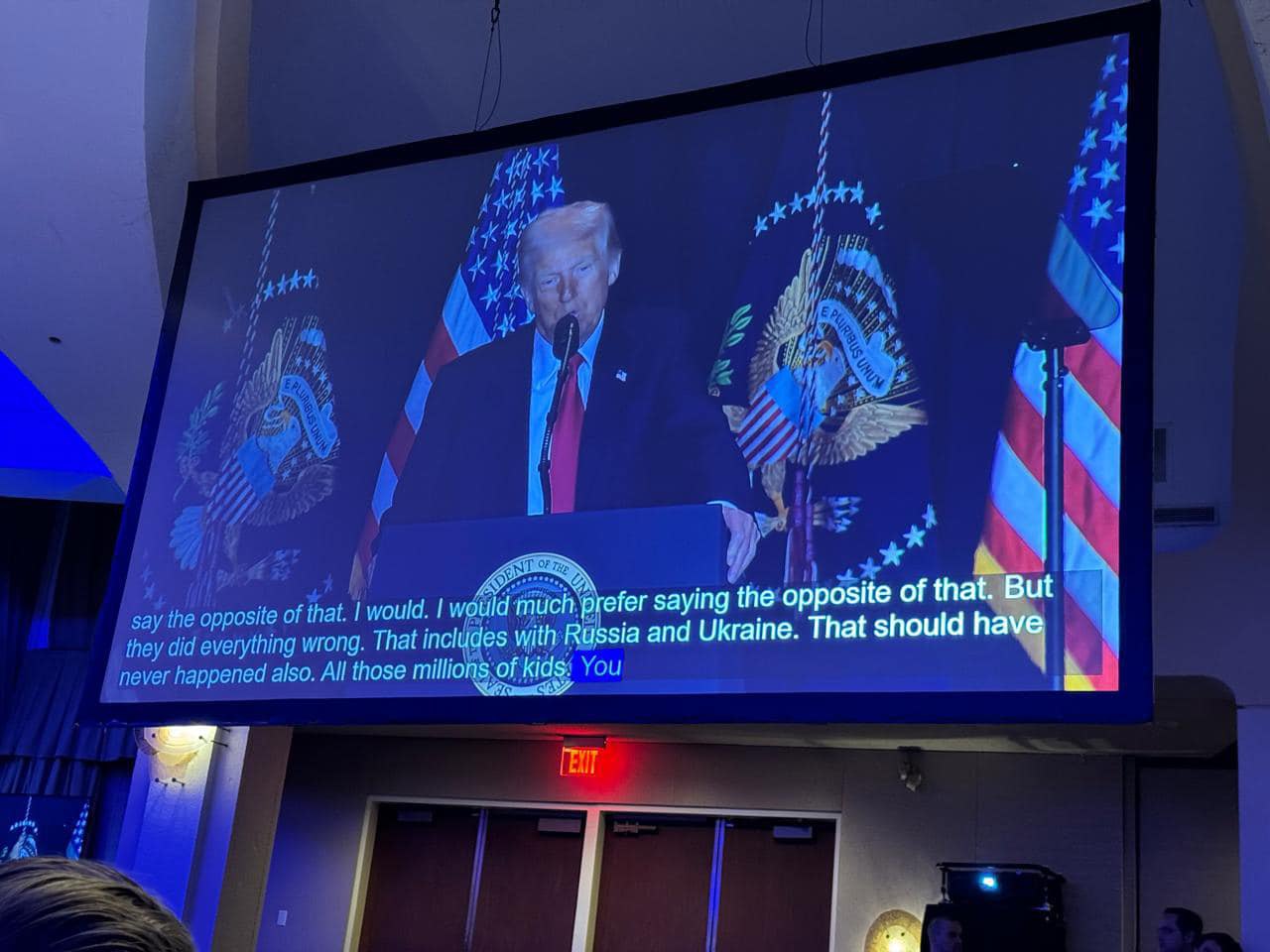
A few weeks after the prayer breakfast, we were already in Washington. General Kellogg participated in a closed Republican convention with a report on Ukraine. It was nice to hear in his speech to the Republican audience what he had seen and heard in Ukraine.
A Harvard CAPS/Harris poll in September showed that 72% of Democratic voters and 73% of Republican voters support providing weapons to Ukraine and sanctions against Russia. Knowing the American context and having worked in this field for many years, how do you explain the change in Trump's and his supporters' attitude towards Ukraine?
I am convinced that the main factor that began to change the attitude of the MAGA group and the broad Republican electorate was Putin's absolutely brazen behaviour.
They saw Alaska. And for patriots and traditionalists, symbolism — the American flag, the American soldier, the eagle, the coat of arms, Air Force One — is a serious matter. And here's the picture: an American soldier rolling out the red carpet for a dictator. Sincere Republicans like Megan Mobbs simply "rolled out" this theme, stating: "I am MAGA, but from 2016-2020. I am for the Great Again format, when America is the arbiter of justice in the world, when it holds its standard of this powerful shining city on a hill.”
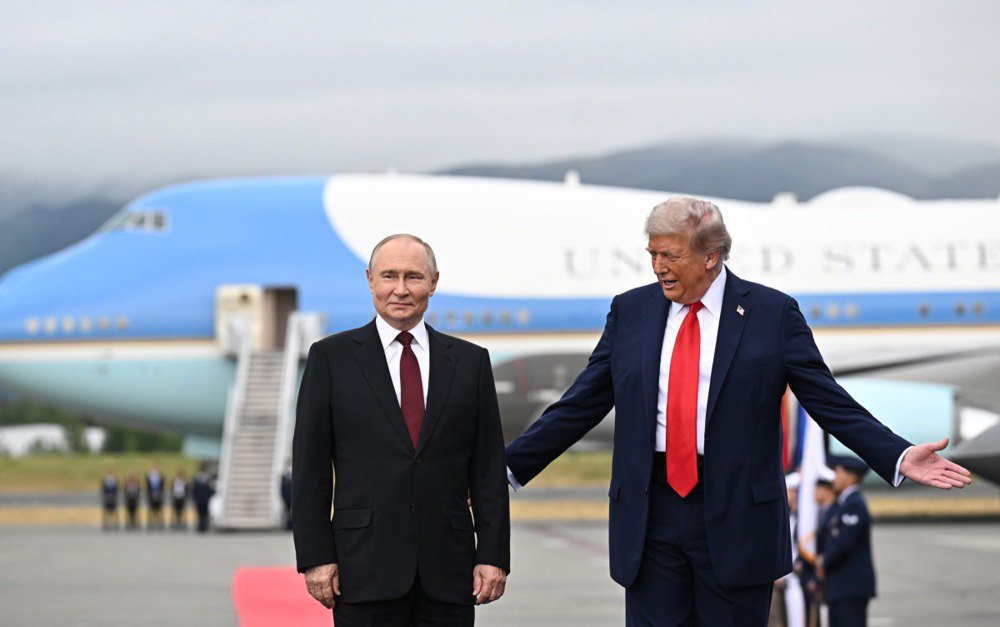
In other words, with this statement, she is effectively opposing President Trump, since he was very different then than he is now. Besides, the soldier did not roll out the carpet on his own initiative; it was obviously an order from the protocol service. And Trump, when he went to meet Putin, knew what he was doing. From what you say, it seems that Donald Trump, sincerely hoping to build bridges with Putin, has lost support among his own supporters?
I think he still sincerely wants to, but Putin is simply mocking him. This arrogance is evident in his behaviour and speech. America made five concessions at the meeting: Anchorage, a military base, the red carpet, security, and turning a blind eye to the international court's arrest warrant. You went to the meeting, said nothing positive, and did not stop the attacks. And again, there is shelling, talk of peace, and nothing else.
Trump brings up the topic of Tomahawk. Here, we must give credit to Marco Rubio, who understands what Russia is and how to deal with it. They come to the conclusion that peace must be achieved through force, which is a "Reagan formula”. While the President of Ukraine is flying to cement this formula, everything changes again. Lavrov speaks to Rubio, is being rude, and there is no longer a meeting in Budapest.
In other words, Republican voters, Trump voters, see that this is simply a cynical, brazen, deceitful game aimed at continuing the war and humiliating America. That is why Trump voters are largely siding with Ukraine. They see that Ukraine is ready for peace, wants peace, and is demonstrating consistency, while Russia is not.
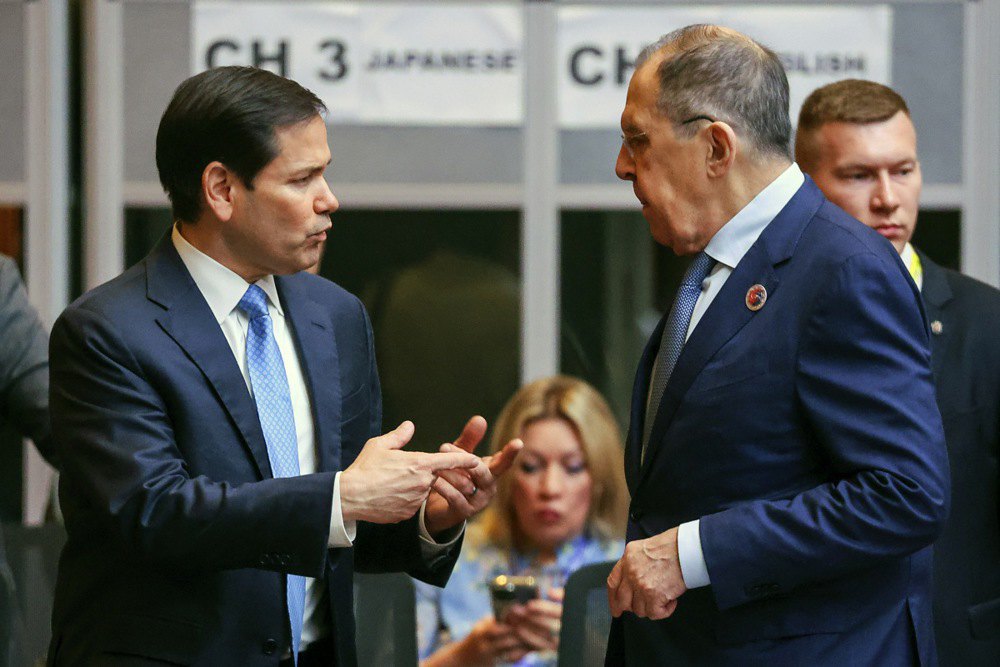
Therefore, I think that the first and main argument here is the audacious behaviour of Russia, of Putin personally. But there are other arguments or reasons why this is happening. These include the work being done with conservative voters, with Republicans, with our Christian evangelical diaspora in America, and the work being done here. For example, our prayer breakfast with Kellogg, Bob McEwen, who heads the most authoritative conservative organisation, the Council for National Policy; Elijah Brown, president of the World Alliance of Baptists; and Edward Graham, grandson of the legendary Billy Graham, who was the spiritual father of America.
Can we separate the change in the mood of Trump's voters from Trump himself? We see that he is still stalling for time, hoping to somehow come to an agreement with Putin, while voters seem to be one step ahead.
I think President Trump has more information than his voters about the real state of affairs in the global macro-security situation, on the subject of nuclear weapons. The confrontation in the Arctic, the confrontation in the Middle East, the role of China — President Trump is trying to weigh all these things and give another chance to try a peaceful solution.
Why did he back down from the Tomahawk? Because of the Gaza and Israel factor. A reconciliation backed by Netanyahu and his team on one side and Witkoff and Jared Kushner on the other. And, of course, the very talented US Ambassador to Israel, Mike Huckabee. He is also a very sincere Christian, a Baptist, and a former governor of Arkansas.
Witkoff was at the forefront of the reconciliation process between Hamas and Israel. At the same time, as a special representative of the US president, he often visited Russia. So, he suggested: we patched things up there, in Gaza, let's patch things up here too.
At one of the press conferences after his visit to the US, President Zelenskyy noted that, figuratively speaking, they flew for Tomahawk, but were forced to break the narratives that Witkoff had planted in the head of President Trump, who also participated in the negotiations. He was the author of the idea of Budapest as geography. In short, Witkoff had a strong influence on Trump's mood. What can be done about this, given his position in the US president's team?
I think that time and the heroism of Ukrainians will grind this down and overcome it. But the price of this is the lives of Ukrainians.
The good news is that there is definitely an increase in the number of people who, based on the opinion of voters, are saying that enough is enough with these peace dances.
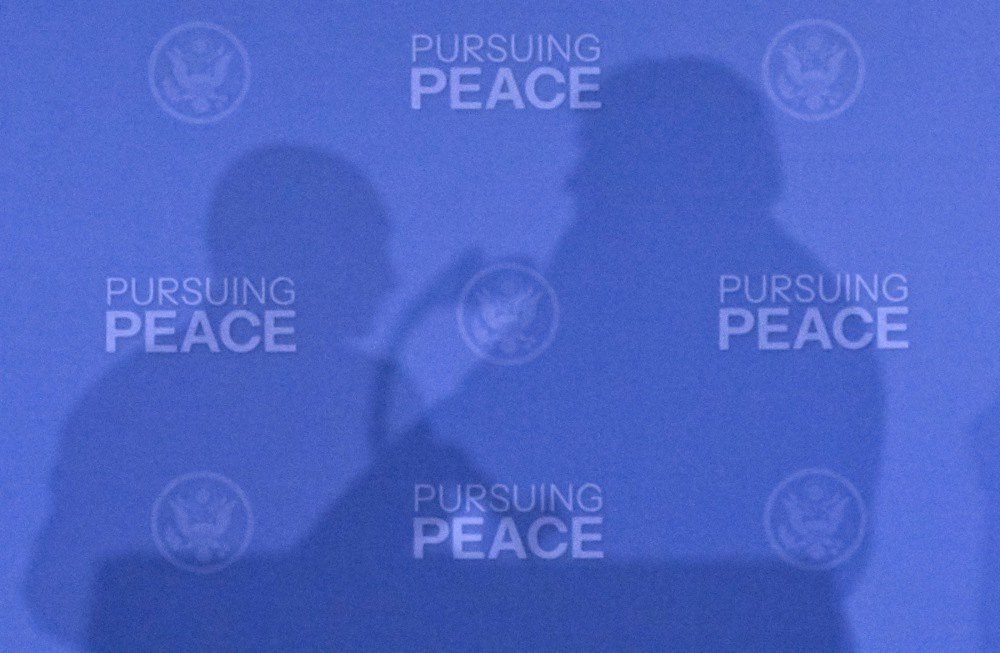
The good news is that American politicians are guided by the opinions of their voters. If the mood of voters has changed, especially secular voters, this cannot fail to be reflected in the actions of politicians. Considering that elections to the House of Representatives will be held in October next year.
I will mention two more points that influence Trump's more secular, less religious voters. These are definitely emotional issues. First of all, for example, the case of Ukrainian children. It needs to be publicised as widely as possible. The fact that First Lady Melania Trump is involved in this case is very good. Right now, our partners, the team that created the film A Faith Under Siege, are shooting a powerful documentary with real stories of horror from the lives of children who were kidnapped by the Russians. And we're talking about tens of thousands of children.
Things like this — about children, shelling that destroys hospitals, schools, kindergartens — have a huge impact. After the events in Kharkiv, the founder of a children's centre, where there were 49 children aged 1 to 6 and where three Shaheds flew in, a powerful businessman Alex Medovoi, who lives in Atlanta, simply went on the air, and it spread across the states. He stated that American residents are doing charitable work in Ukraine, and that they are being targeted, even for their children. Such things are extremely important even for non-religious listeners and readers.
And one more thing — indeed, the midterms are approaching (interim elections during which the entire House of Representatives and one-third of the Senate are elected. — S.K.). They are approaching amid a severe shutdown (the interview was recorded before it ended. — S.K.), which is destabilising governance and the atmosphere itself. People cannot work normally, airlines are starting to cut night flights, and there are warning strikes by workers who provide air traffic control services across the country. These are dangerous things. Patrons are forced to give money to the Pentagon.
Secondly, we are seeing a gradual recovery from the crushing defeat of the Democratic Party. Moreover, as we are seeing so far, this recovery is taking place in the most extreme form.
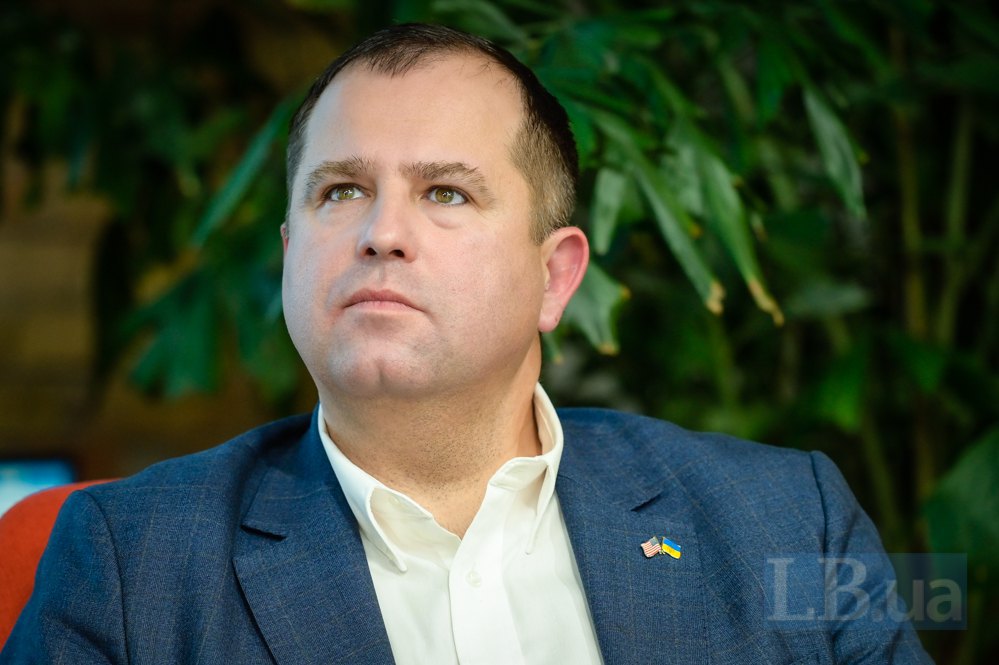
And this is what happened in the New York election: it wasn't some moderate Democrat who won, nor some independent candidate, although there were some (and it was the independent candidate who was supported by the Republicans), but a Muslim born in Africa who supports a whole range of ultra-leftist values. And he becomes mayor of America's largest city, a city associated with President Trump. And his rhetoric is openly aggressive.
While the Maryland gubernatorial election, won by the Democrats, was not a sensation, in Virginia, for example, a female Democrat became governor for the first time in the state's history, following Republican Glenn Yanking.
Pennsylvania is traditionally a swing state. A year ago, the fate of the election was also decided there. The part closer to Atlanta, New York, and Philadelphia supports democracy. The continental part, closer to Ohio and Pittsburgh, where metallurgy is located, supports the Republicans. And a few days ago, a Democrat was elected mayor there too.
What does this mean for Ukraine?
As before, we must be aware that we need to talk to both parts of society, to both parties, and be bipartisan in our efforts and diplomacy. And we must do so very correctly and respectfully.
We will see how events unfold. Because local elections are, after all, local. Overall, there were no surprises. The Democrats were expected to take New York, that much is obvious. Perhaps there just needed to be a less prominent left-wing candidate.
Yesterday, I had a conversation with representatives of the right wing of American politics. For them, this was a serious cold shower, because they are in a state of upheaval and mobilisation. First, they won elections in all branches of government. Second, the murder of Charlie Kirk, who has become something of a legend.
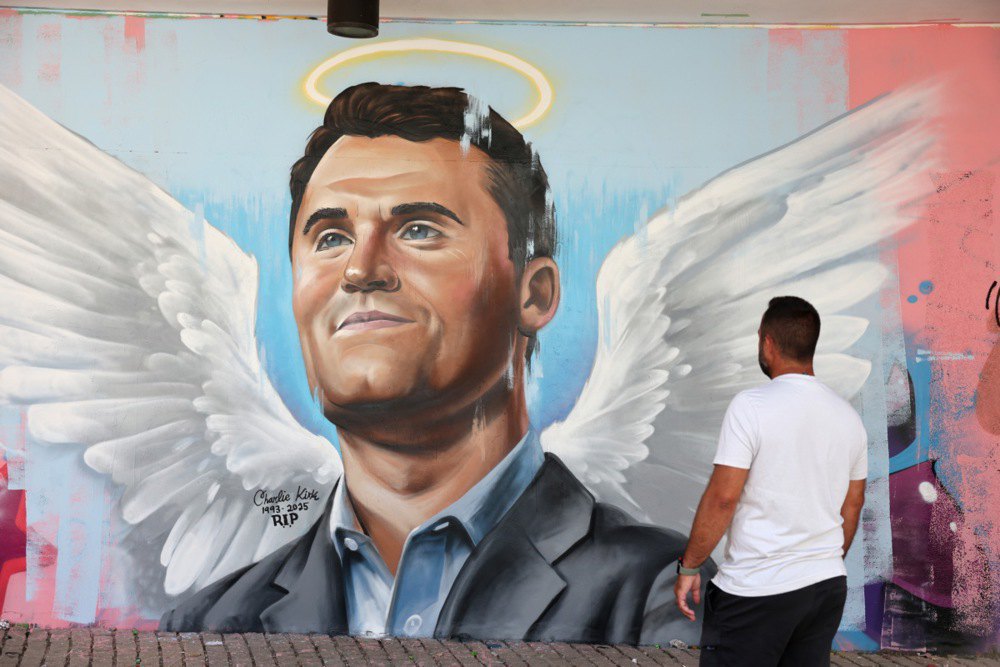
"The strategic partnership between the United States and South Korea, Taiwan, or Israel did not come out of nowhere. It is the result of decades of effort."
Why did I ask about the change in sentiment among secular voters regarding support for Ukraine? This is, of course, to our advantage, but it is not our doing. And the problem is that with Trump's sharp change of heart, the views of his supporters will also change. It is no secret that the Russians desperately need Pokrovsk in order to "sell" to Trump that they have "captured the entire Donbas."
If Ukraine does not achieve significant success on the battlefield, Trump's position may change, and with it the mood of American society. How can this be prevented? How can institutional work be built, apart from that which is already being done with the religious segments of American society?
In fact, what is needed here is powerful, joint, interdepartmental and public intellectual communication and strategy.
I think we need to create a think tank, a centre for joint work, which will include both those who know how to talk to the right and those who know how to talk to the left. And those who work through diplomacy, those who work through closed spiritual diplomacy, through business. We have had a change of ambassador, and this is a good opportunity to strengthen ourselves institutionally in order to work across the maximum spectrum of American society, the establishment, and the mass media, forecasting various scenarios for the development of events.
At the same time, we need to form and continue to strengthen all possible aspects of strategic partnership in the long term.
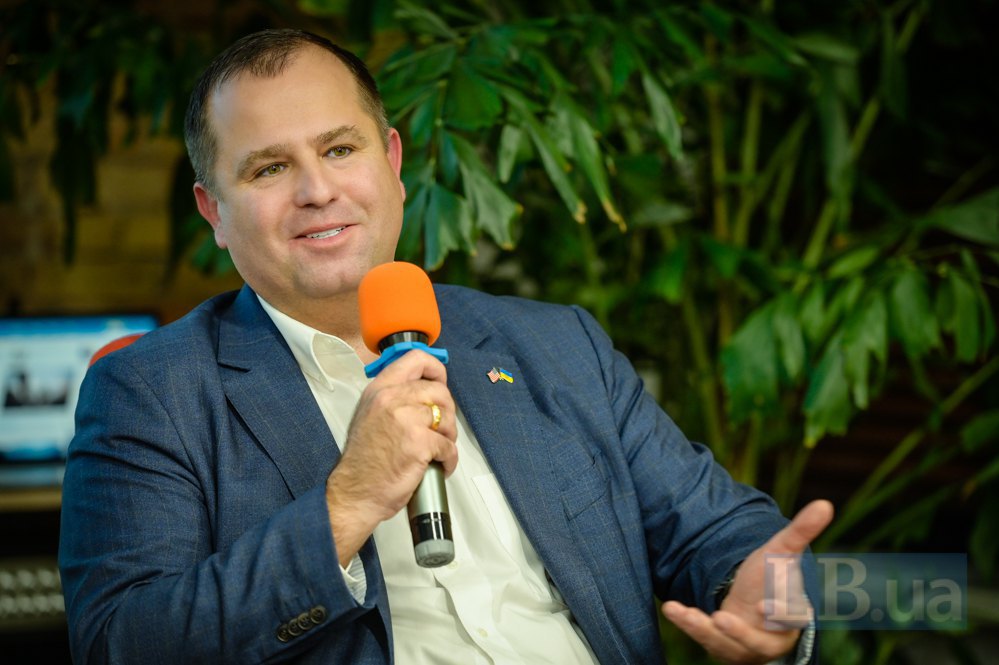
It should be some kind of state-level association, correct? It should have official status and authority.
I think we should at least have powerful joint government-parliamentary-diplomatic working algorithms. Perhaps some kind of informal coordination headquarters responsible for this area. The Israelis did this, the Koreans followed this path, because strategic partnerships with South Korea, Taiwan, and Israel did not come out of nowhere. It took decades of effort.
The same must be true at the societal level. For example, next year we have two big events. Our Christian Partnership Movement of Ukraine and America is preparing a powerful Ukrainian week and our prayer breakfasts. Our prayer breakfast in Washington will be held for the twentieth time.
It will take place the next day in the same hall where the presidential breakfast is held. Throughout the week, we will be communicating with the conservative part of the establishment and Americans who will be attending their major events. During the week, which we call Ukrainian Week, there will be an International Summit on Religious Freedom, led by Ambassador Sam Brown, a powerful Catholic who is highly respected by Protestants; the National Prayer Breakfast, Day of Prayer and Repentance, hosted by Pastor Jim Harlow and Tony Perkins, a legendary figure and personal confidant of Speaker Johnson.
During this week, we will have our Ukrainian activities, called Ukrainian Week. Washington DC. Secondly, we need to prepare very well and jointly celebrate the 250th anniversary of American independence.
The year 2026 marks the 250th anniversary of the signing and adoption of the US Declaration of Independence. And here we can find many common historical parallels.
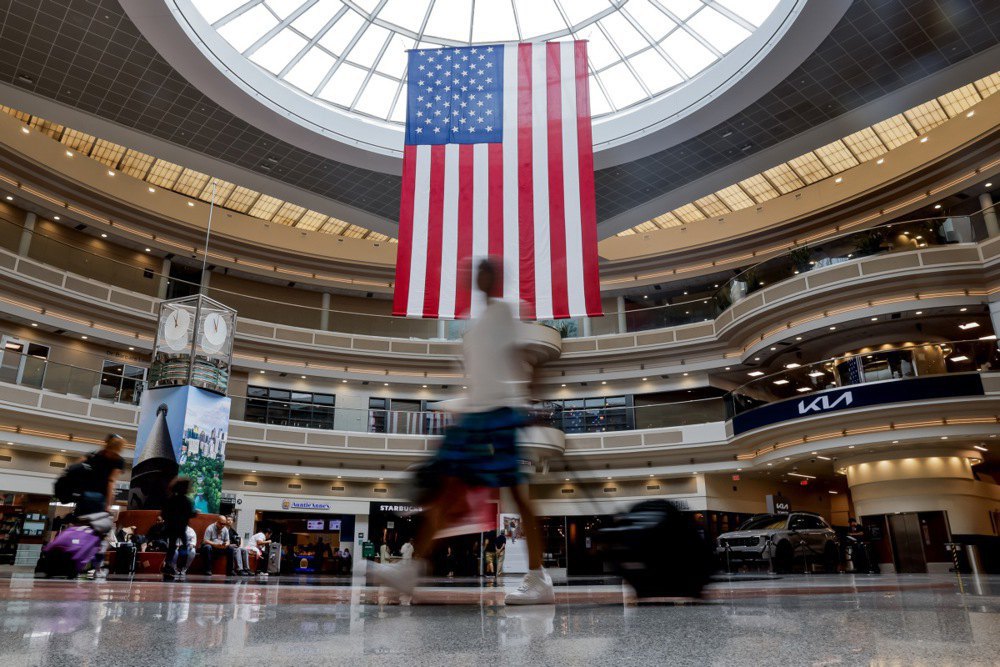
What exactly are we going to do?
We are forming a socio-political organising committee in order to maximise the involvement of all possible lines of communication.
First of all, this date must be included in the list of significant dates for 2026 at the level of presidential decree, government and parliament. This is no ordinary event — 250 years of America. Of course, there are many other dates that are significant for Ukraine, but we can include this one.
Secondly, we need to create a plan of action at as many levels as possible to jointly celebrate these events through educational projects and research, cultural events and films.
We want to hold not only Ukrainian Week in Washington in February, but also American Week in Ukraine in the spring or summer, which would include business, agricultural and military components.
Next. I propose, and we now want to communicate with our key structures responsible for regional cooperation — the Congress of Local and Regional Authorities and the Association of Ukrainian Cities — that this year we should move strongly towards maximum partnership between regions and states, cities and cities, districts and counties. And then, based on this partnership, we will move on to sectoral partnerships: school plus school, university with university, sports team with sports club, hospital with hospital, sheriffs with police, and so on. Regardless of whether it is a Republican or Democratic state, this momentum must continue.
Okay, they can give us experience, money, lobbying. What can we give them?
We can be partners. Of course, this is more about socio-cultural and socio-humanitarian cooperation. But there is also a business component, which we need to develop. Continue and accelerate the story with the mineral agreement. They are really interested in the agricultural component with processing, American technologies, and so on.
Then there is military tech, our experience in drone warfare, etc. — here we can also be very interesting.
For a conservative audience, we remain the centre of the Bible Belt of Europe and Eurasia. If we take global evangelisation seriously, Ukraine is the largest evangelical hub in Europe, the centre of the Bible Belt. And it is much more difficult to prepare and send a missionary from the US than to do it jointly with Ukrainian evangelists.








